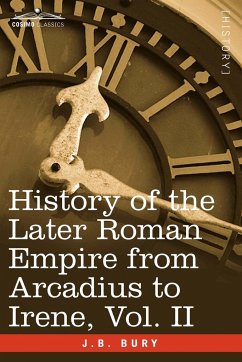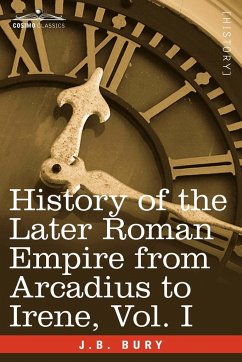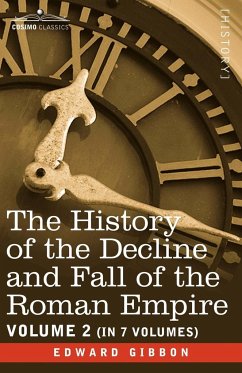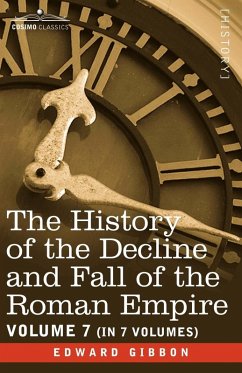Apsimar and his party sailed directly to Constantinople, and anchored at Sycae. For a time Leontius held out, but his enemies succeeded in bribing certain officers who possessed keys of the gates to admit them near the palace of Blachernae. When the soldiers obtained admission they stripped the inhabitants of their goods and plundered their houses. It was an unfortunate year for the citizens of Constantinople. They had hardly recovered from a deadly plague which had ravaged the city for four months, when they were forced to submit to violence and pillage at the hands of the troops who were paid to defend them. We shall see this occurrence repeated before many years have elapsed. -from Chapter XIII: "Twenty Years of Anarchy" This classic two-volume history of the Later Roman Empire, first published in 1889, remains one of the most readable works on the era, and is highly recommended for students of Roman culture. Volume II explores: ¿ the age of Justinian ¿ the slaves ¿ changes in the provincial administration ¿ the geography of Europe at the end of Justinian's reign ¿ Byzantine art ¿ notes on the manners, industries, and commerce in the age of Justinian ¿ the Lombards in Italy ¿ the empire and the Franks ¿ literature of the sixth century ¿ monotheletism ¿ dismemberment of the empire by the Saracens ¿ foundation of the Bulgarian kingdom ¿ twenty years of anarchy ¿ social and religious decay in the seventh century ¿ the geographical aspect of Europe at the end of the eighth century ¿ and much, much more. British historian JOHN BAGNELL BURY (1861-1927) was professor of modern history at Cambridge. His writings, known for a readability combined with a scholarly depth, include History of Greece (1900) and Idea of Progress (1920).
Hinweis: Dieser Artikel kann nur an eine deutsche Lieferadresse ausgeliefert werden.
Hinweis: Dieser Artikel kann nur an eine deutsche Lieferadresse ausgeliefert werden.








